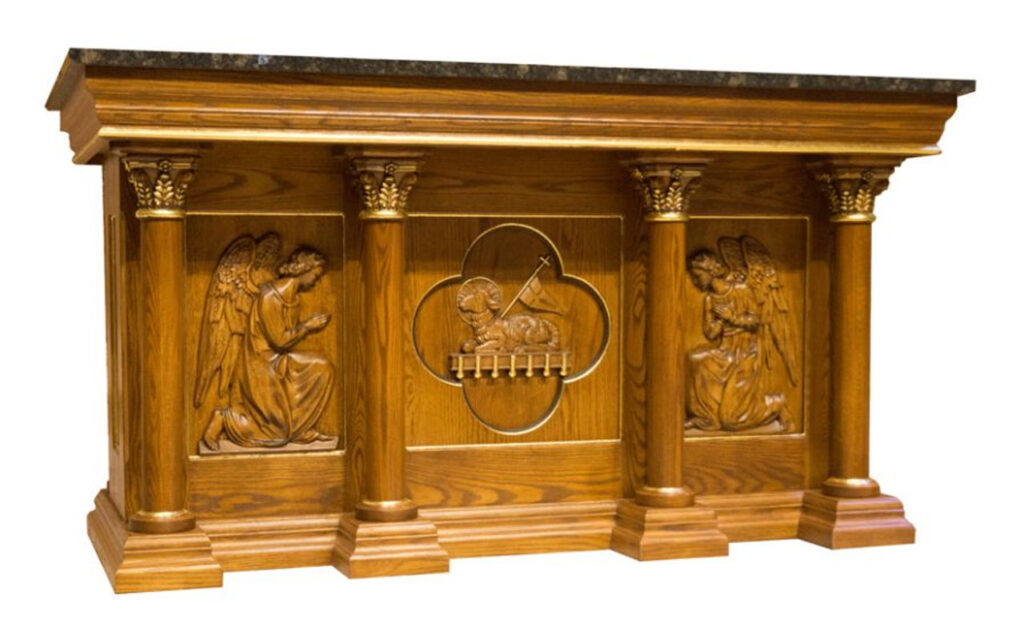Note: If you wish to receive, via e-mail, (1) my weekly newsletter or (2) daily copies of these posts, write to me at rrbates1951@gmail.com. Comments may also be sent to this address. I promise not to share your e-mail with anyone. To unsubscribe, write here as well.
Sunday
Our church vestry, of which I am the senior warden, recently was confronted with a small but interesting challenge. Years ago our old church altar, constructed in 1911, was replaced and now occupies a prominent place in the old rectory, sometimes serving as a buffet, sometimes as a place upon which flowers and ornamental lamps sit. It has various hand carvings by a prominent local woodworker, and one of the descendants of this woodworker’s apprentice—the apprentice having herself contributed carvings to the altar’s side panels—would like the altar for herself. The issue of ownership has led to Vestry discussions resembling those to be found in Jan Karon’s Mitford series, about a quaint little Episcopalian parish in rural North Carolina.
I don’t know how we’ll decide—the altar, while no longer functioning in its original capacity, was after all a gift to the church—but the request has gotten us to take a closer look at it. I mention it here because it reminds me of a wonderful Malcolm Guite sonnet about his own church’s old wooden altar. While ours isn’t centuries old, many of Guite’s observations still apply. Here it is:
This Table
The centuries have settled on this table
Deepened the grain beneath a clean white cloth
Which bears afresh our changing elements.
Year after year of prayer, in hope and trouble,
Were poured out here and blessed and broken, both
In aching absence and in absent presence.This table too the earth herself has given
And human hands have made. Where candle-flame
At corners burns and turns the air to light
The oak once held its branches up to heaven,
Blessing the elements which it became,
Rooting the dew and rain, branching the light.Because another tree can bear, unbearable,
For us, the weight of Love, so can this table
The other tree Guite mentions is the cross, which bore weight of Love. So did our old altar, which year after year bore the bread of heaven and the cup of salvation. As the “changing elements” were “poured out here and blessed and broken,” churchgoers experienced both God’s aching absence and God’s absent presence.
I love how Guite tracks back to when the altar was an oak tree, which reminds me of the old medieval poem “Dream of the Rood.” It’s as though that tree also was blessing the elements—the dew and the rain—and becoming one with them. As Jesus becomes one with us through the eucharist, “branching the light.”


